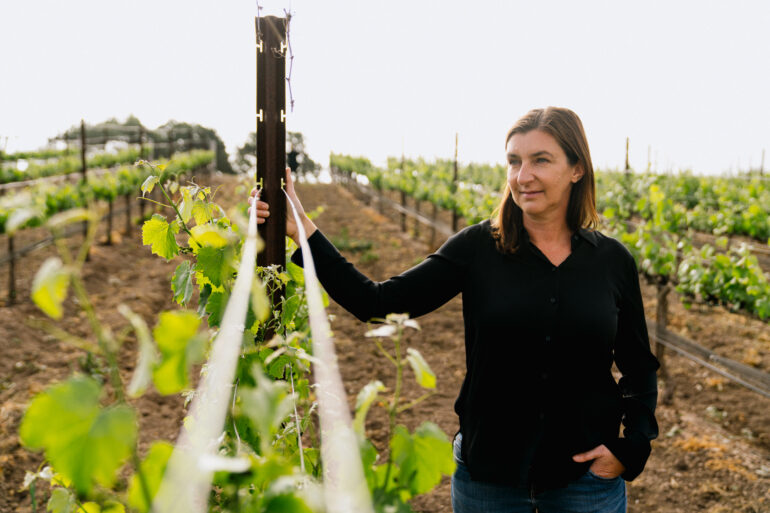The pages of several new innovation chapters in the wine industry are being written right now. They’re not perfect pages, but they’re great works in progress — perhaps some of the best advances yet to be made in the American wine industry. Those chapters could be titled “Environment,” “Regenerative Farming,” “Sustainability” and “Social Equity.” They also include “Education,” “Promotion of the Arts” and “Healthy Living.”
We’ve identified a short list of wineries throughout the US that are helping write this story — while also producing delicious wines that are entirely worth seeking out. From California environmentalists to Midwestern social justice reformers to East Coast sustainability pioneers, we hope that in addition to discovering a new favorite house wine, you’ll find inspiration and ways to personally support their great causes.
Trois Noix Wine
Jaime Araujo, Founder and Vintner
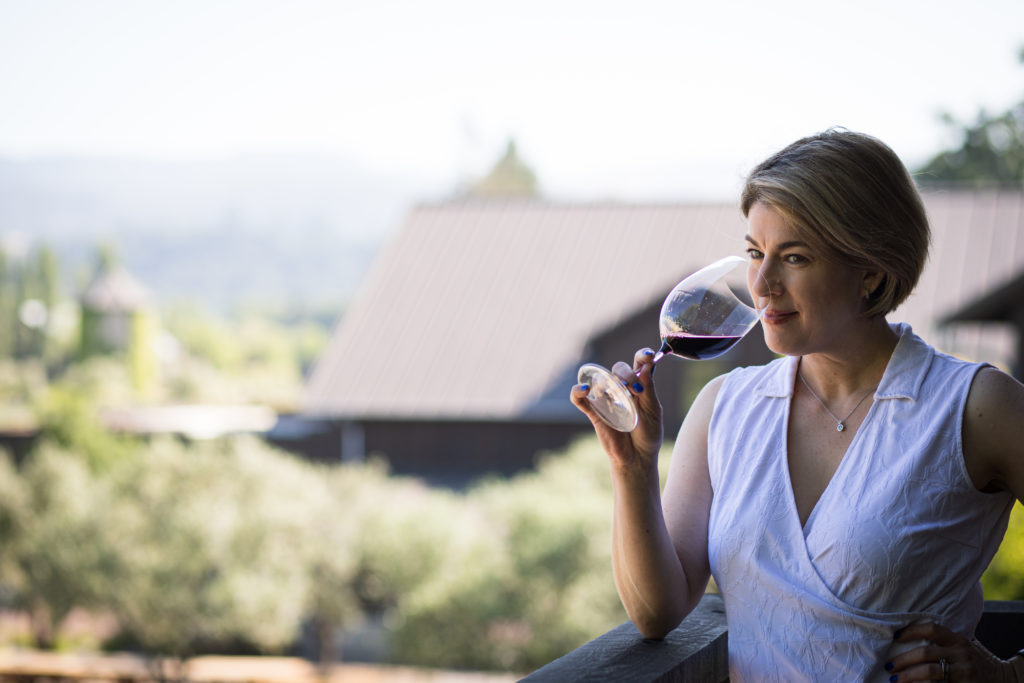
After an early career as a stage and film actress, Jaime Araujo segued to a life in wine. She attended the University of Bordeaux and then worked in the London wine scene. It was a natural shift. Her parents, Bart and Daphne, had moved to Napa in 1990, bought Eisele Vineyard, and established the iconic Araujo Estate (today, they own Accendo Cellars.)
Araujo, who is also a partner in Accendo Cellars, established Trois Noix (which means ‘three nuts,’ a reference to family) in 2013 with a single-vineyard Cabernet Sauvignon from Coombsville. Her focus on producing “beautiful, delightful wines of freshness and balance, with a light touch” extends to a diverse portfolio of white, pink, and red wines today. Araujo credits winemaker Françoise Peschon (who makes Accendo) as one of her top mentors.
At Trois Noix, Araujo shines a light on inclusivity and diversity in wine to foster a space “where everyone is welcome,” she says. “We support various initiatives each year and choose two specific ‘Possibility Partners’ with whom we work more closely.” In 2022, the team chose Batonnage — an annual forum focused on supporting women in wine and Hispanic people in Wine and provides education and career resources to the wine industry community of Hispanic and LatinX workers. Trois Noix, a certified B Corp, is certified Napa Green as well, committed to positive climate action, regenerative practices, and social equity.
Massican Wines
Dan Petroski, Founder and Winemaker
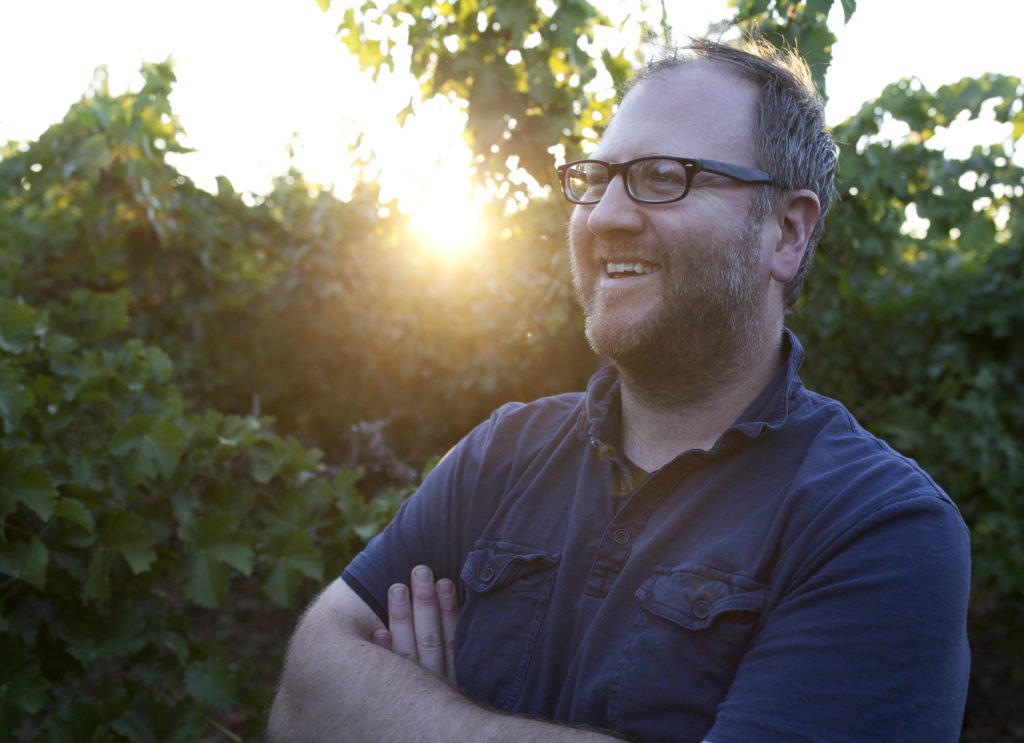
Seventeen years ago, Dan Petroski took a sabbatical from a publishing career in New York City to live in Italy and work on a vineyard in Sicily. He had no intention of becoming a winemaker, but in 2006, he ended up in Sonoma County working a harvest for Andy Smith at DuMOL. Smith recognized Petroski’s potential and hired him as the Cellarmaster at Larkmead in Calistoga. Six years later, Petroski was named winemaker, on his way to fashioning 100-point Cabernet wines of his own.
But that Italian obsession held sway, and in 2009, with the desire to create California white wine blends in a Mediterranean style, he launched Massican. Working with rare Italian varieties, Chardonnay and Sauvignon Blanc, he began crafting fresh, floral, citrusy, and salty wines in that quintessential Mediterranean white style. Today, Massican makes six white wines, including a unique bottling for Whole Foods, and Petroski is working on a global collaboration project with a handful of winemaking friends that are making their personal versions of a Massican wine.
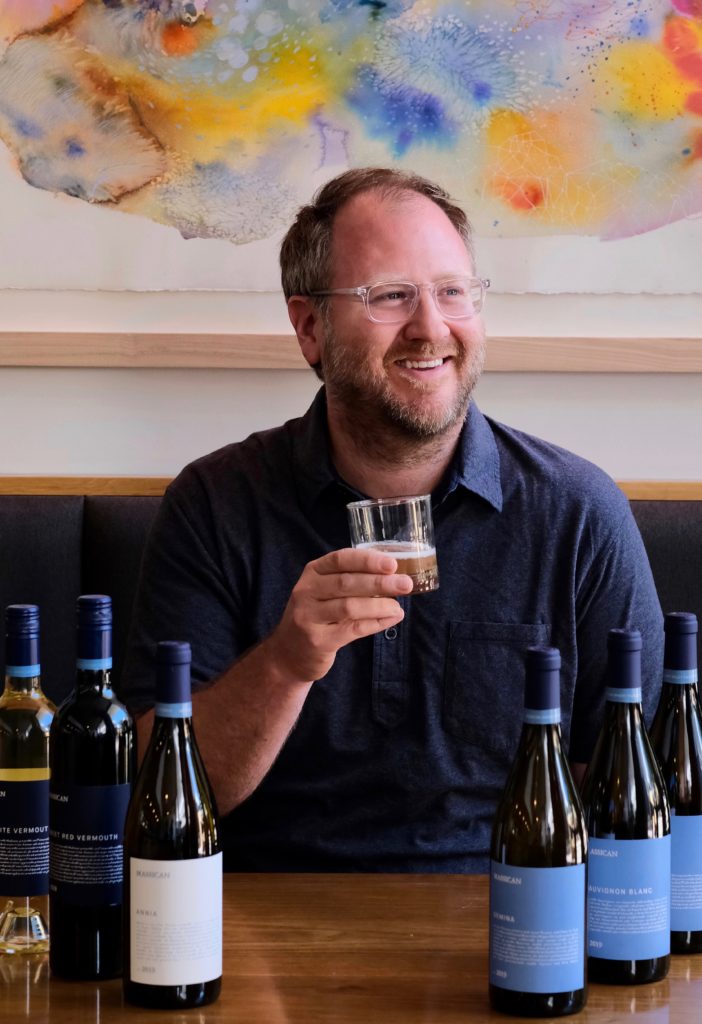
After the Napa fires in 2017, Eric Asimov of the New York Times asked Petroski if he thought the fires were a result of climate change. “I couldn’t answer that question scientifically,” says Petroski. But he began looking into it. What he looked into was three data points from Larkmead records — the vineyard, the climate during the vintage, and the winemaker’s influence — and he realized that the growing season at Larkmead shifted 45 days forward. Alarmed that “If climate alone can move the agricultural needle two weeks in a span of 10-12 years,” he reasoned it was worth focusing on. Petroski has written Op-eds, hosted seminars, joined the Board of Directors of Napa Valley Grapegrowers and Napa Green, and is “committed to creating awareness and solutions for preserving and protecting the vineyards of Napa Valley.”
Scheid Family Wines
Heidi Scheid, Executive Vice President
Casey DiCesare, Winemaker
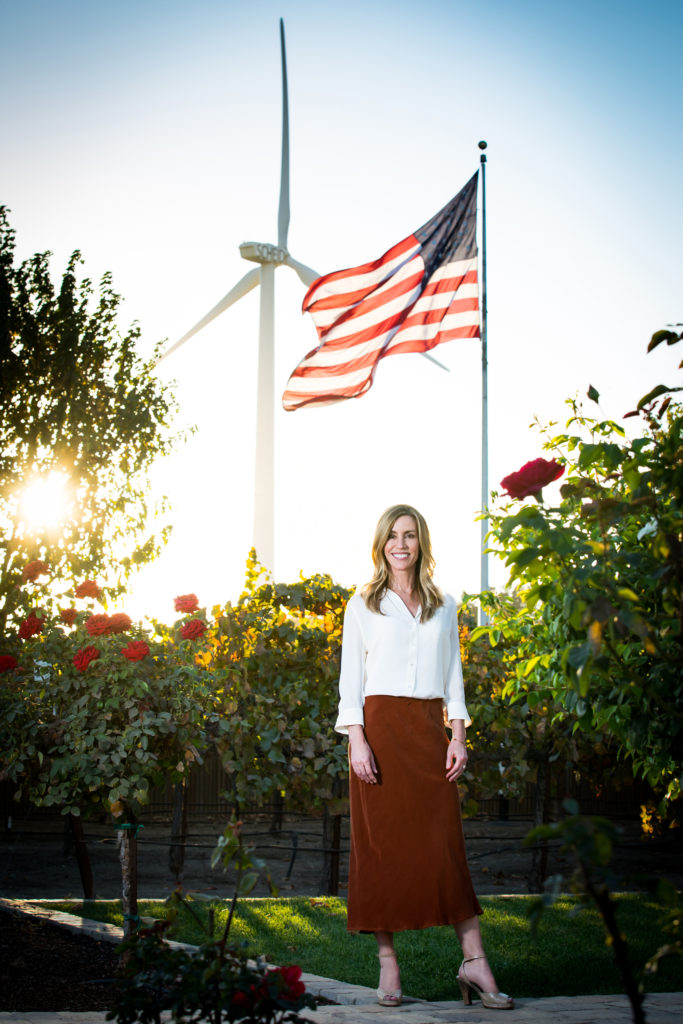
Scheid Family Wines began as the Monterey Farming Corporation in 1972 when Al Scheid purchased land in Monterey and became a grape grower. The first wines under the Scheid Vineyards label rolled off the bottling line in 1989 with less than 100 cases of Cabernet Sauvignon. Today, the family portfolio includes roughly 12,000 cases of wine produced annually and features a host of fantastic names: Sunny with a Chance of Flowers (a zero sugar, low alcohol wine), Grandeur (an organically certified wine), VDR (Very Dark Red), and HOXIE (an artisanal dry wine spritzer), to name a few, and their namesake label showcasing varietal-wines and blends from the Monterey appellation.
Winemaker Casey DiCesare joined as an assistant enologist in 2017 and was named winemaker in 2020. DiCesare oversees the production of nuanced and elegant wines with moderate alcohol, not overly oaked, and true to varietal character. “We’re at the forefront of making wines with limited inputs, as well as offering greater label transparency regarding nutrition facts and ingredients,” says DiCesare.
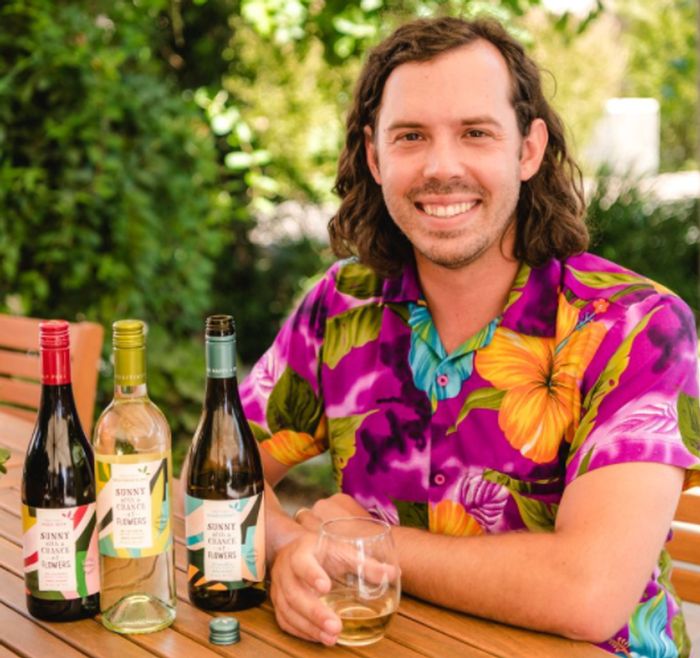
And with winemaking in sound hands, Executive Vice President Heidi Scheid, Al’s daughter, has time to focus on the family’s numerous sustainability initiatives. Between renewable energy and community-focused programs, Scheid is a real thought-leader in these spaces. Their “most visible” work, as Scheid muses, is their 400-foot wind turbine. Since 2017, the family has been powered by 100% renewable wind energy. In 2021, “Our turbine output resulted in 3,125 tons of avoided carbon dioxide emissions,” says Scheid (the equivalent of driving 611 gas-based cars for one year). They supply enough energy back to the grid to power over 125 homes in their community. And since 1988, the family has awarded $400,000 in scholarship money to local high school students through their annual Scheid Writing Contest.
Turning Tide Wines
Alisa Jacobson, Owner and Winemaker
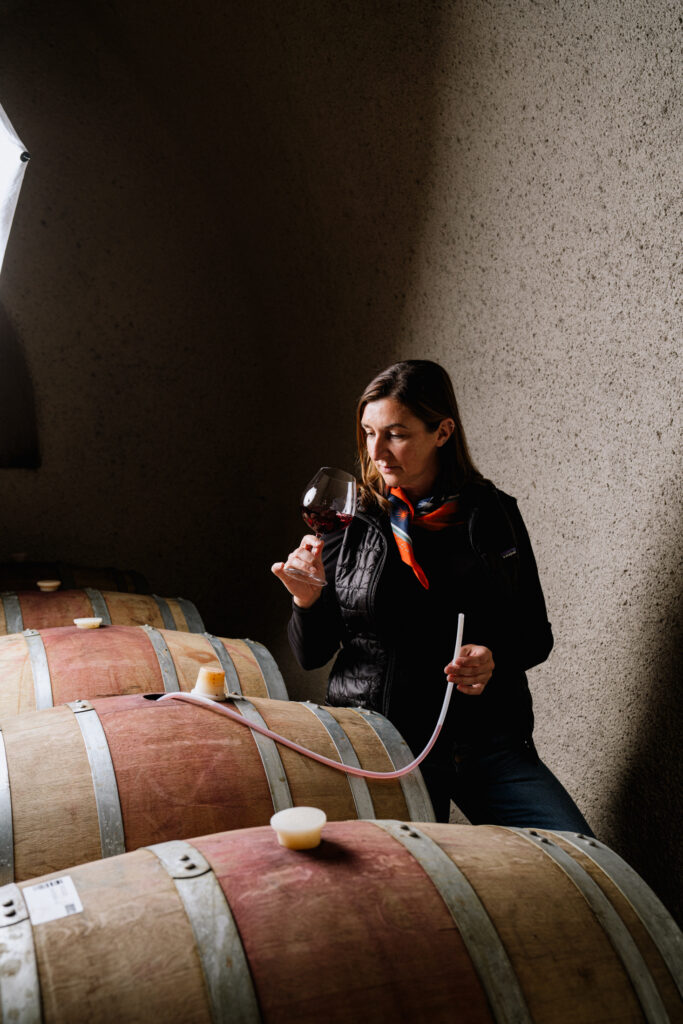
Turning Tide founder Alisa Jacobson is an avid environmentalist and outdoor enthusiast. Jacobson’s early work in the cellars at Joseph Phelps in Napa introduced her to then-winemaker Sarah Gott, who was starting a family project, Joel Gott Wines, with her husband. In 2003, they hired Jacobson, and she stuck with the Gotts until branching out to launch Turning Tide, which debuted in 2020. Today, she produces structured Oregon Pinot Noirs alongside lush Chardonnay, a mineraly Chenin Blanc-based white blend, a rich and delicious Grenache-based red blend, a zippy Picpuol, and crisp Sauvignon Blanc and Rosé, all from appellations throughout California’s Central Coast, mostly in Santa Ynez Valley. Jacobson also makes a CCOF organically certified Sauvignon Blanc and Cabernet Sauvignon for Whole Foods.
“The organically farmed Sojeau Vineyard in Oregon’s Eola Amity Hills inspired me to start Turning Tide,” explains Jacobson. “The wines from the site were so alive and vibrant and inspired me to make wines that highlight the purity of grapes farmed organically.” Then, she zeroed in on packaging. The idea that a heavy bottle equates to quality is a notion that Jacobson says “needs to end.” She only uses lightweight recyclable glass and recyclable labels printed with compostable ink.
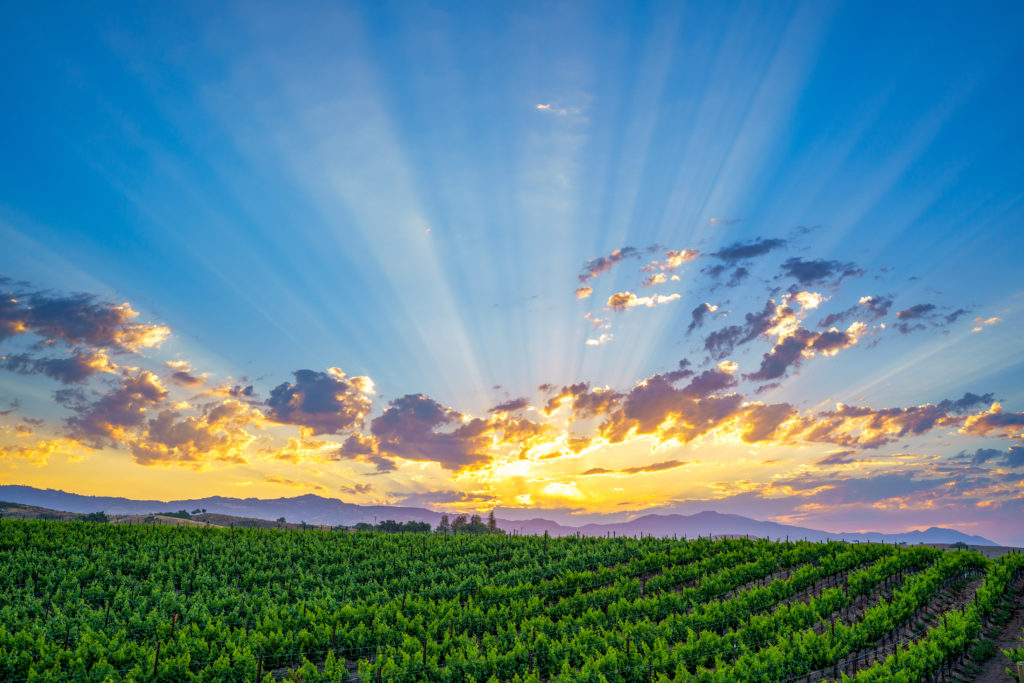
When not focused on lightly-oaked, low alcohol, no residual sugar, and low sulfite wines, she is actively involved in climate initiatives. Jacobson is a West Coast Smoke Exposure Task Force member, working on research aimed at protecting wine growers and grape buyers during fire events. She is also the Co-Chair of the Unified Grape and Wine Symposium Program Development Committee — the largest grape and wine production event in the US. “I’m doing everything I can to help others working in wine to use less water in farming and production and reduce harmful pesticides and herbicides,” she says. On top of that, she debuted a brand of Cabernet called “AJ,” which includes a nutrition label on the back.
RAEN Winery / Monarch Tractor
Carlo Mondavi, Co-founder and Winemaker; Chief Farming Officer
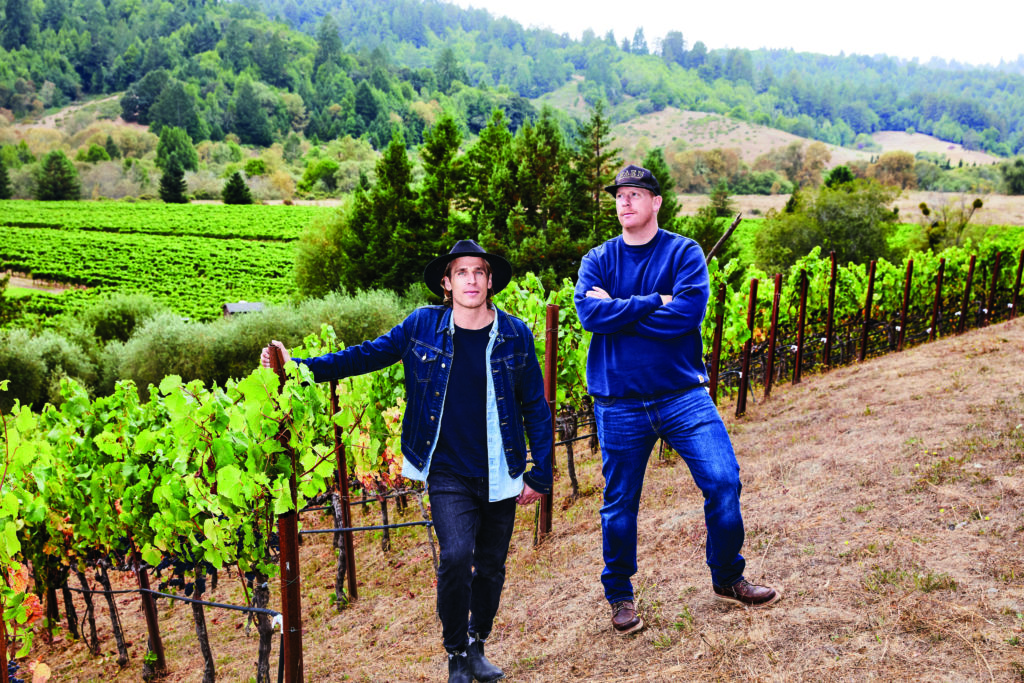
It’s never a given that the next generation follows in the footsteps of the previous, but in the case of the Mondavi family, farming and winemaking are truly all in the family. Carlo Mondavi, the son of Tim Mondavi and grandson of Napa legend Robert Mondavi, fell in love with wine while growing up around it at Robert Mondavi Winery and Opus One. Carlo says that his dad, Tim, is his greatest teacher when it comes to wine. When Carlo decided to make a go at the family business, he set his own sights on Pinot Noir.
He worked at Domaine Dujac, a relative newcomer to Burgundy established in 1967 in Morey-St. Denis, and learned the art of making polished, finesse-driven wines. Back stateside, Mondavi (and brother Dante), began looking for true Sonoma Coast micro-climates that were capable of producing ethereal, delicate wines from terroirs that might “sit alongside the grand crus of the world,” as Mondavi puts it. “It took us a decade,” he says, but they settled on sites in the Sonoma Coast, Freestone-Occidental, and Fort Ross-Seaview AVAs. They established RAEN winery (an acronym for Research in Agriculture and Enology Naturally), and in 2013 introduced three Pinot Noir wines: Royal St. Robert, Bodega Vineyard, and Sea Field Vineyard. Today, they continue to produce highly-sought after, complex, structured, lovely wines.
In 2018, Carlo set his sights on another goal inspired by the plight of the Monarch Butterfly. The butterfly’s migratory path—straight through a large portion of California’s millions of acres of farmland—has run into decades of herbicidal sprays, which have decimated its population from millions to thousands and landed it on the endangered species list. Eyeing the innovations in electric, self-driving cars, Mondavi co-founded Monarch Tractor, a company that produces fully electric tractors with self-driving capabilities to “get away from fossil fuels in farming and stop the use of herbicides,” explains Mondavi.
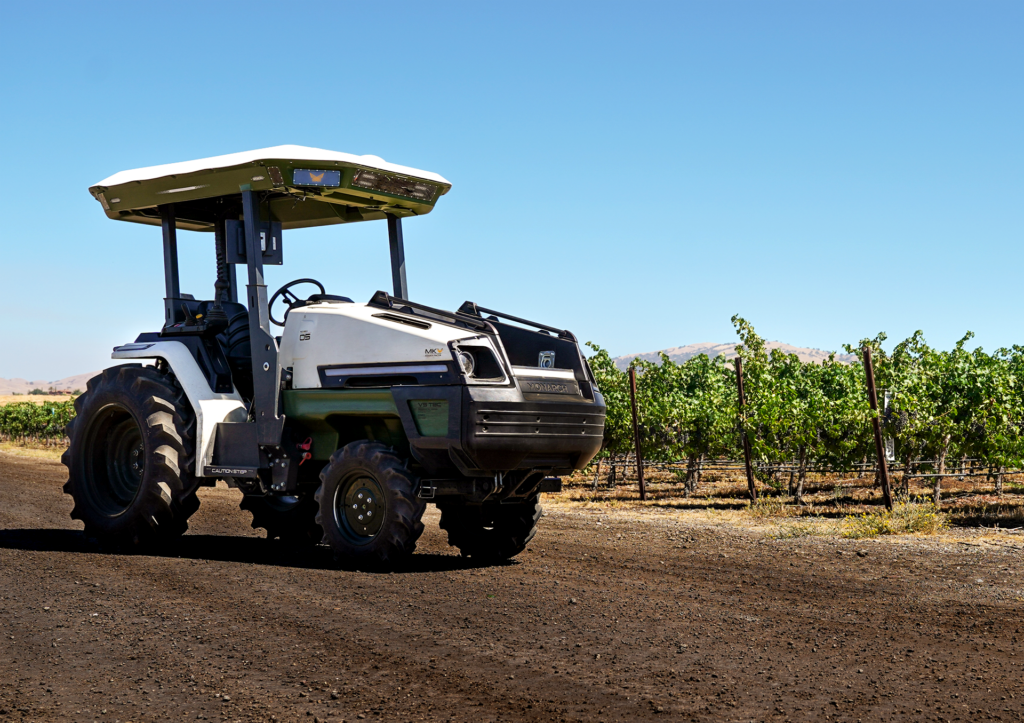
Most tractors run on Diesel gas, and most farmers spray, so they don’t have to mow. Mondavi’s solution is to have farms run electric tractors, which are quiet, don’t pollute the air, and can allow farmers to stop spraying, which will save farms millions of dollars spent on chemical sprays and could even make family farms profitable. “Biodiversity is how our planet thrives, and I believe that creating balance is important for our survival.”
Michael Lavelle Wines
Aaron “Michael” Coad, Head of Creative
Terrence “Lavelle” Low, Head of House
Devin Kennedy, Head Sommelier
Brandon Crump, Head of Operations
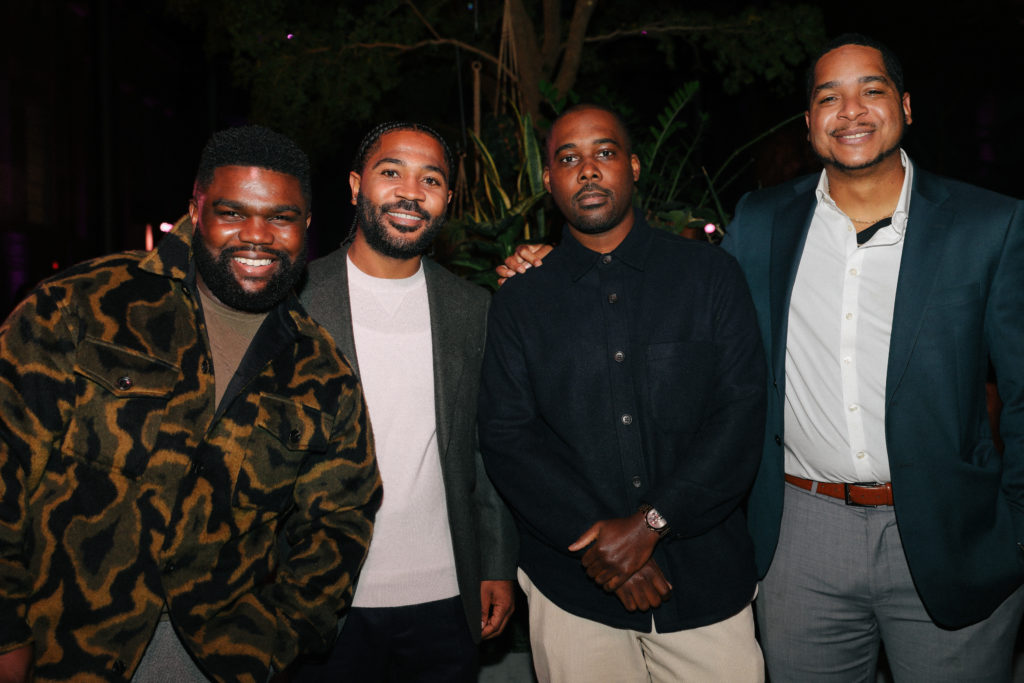
Based in Chicago, Illinois, Michael Lavelle wines, a Black-owned luxury private wine label, was established in June of 2020 by two Howard University alums — Aaron “Michael” Coad and Terrence “Lavelle” Low. Today, the team consists of the two founders plus Sommelier Devin Kennedy (formerly of Union Square Hospitality Group and the iconic lower-east-side cocktail lounge Pouring Ribbons that shuttered in early 2022) and also Brandon Crump, who is head of operations for the label. Following the négociant model made famous in Burgundy, the partners source wines from reputable growers or wineries, looking for marks of “high quality,” as Kennedy puts it.
Low says that he and Coad created Michael Lavelle (ML) wines because “There are few Black stories within the wine industry, even fewer in the millennial demographic,” and they realized an opportunity to change the narrative. And, importantly, to market a specific style of wine to the Black community, which, Crump, speaking to the Black Christian News Network, says has historically been targeted with “sweet wine.” The two wines that currently make up the ML portfolio are anything but sweet — the style is elegant, full-flavored, dry, and nicely structured. The Iris Rosé, an unusual blend of Cabernet and Pinot Grigio grapes grown in Coastal California, is utterly delicious, refreshing, zesty, mineral-driven, and spicy, while their Iris Zinfandel from Lodi, California, is a lovely structured red with excellent concentration and savory spices.
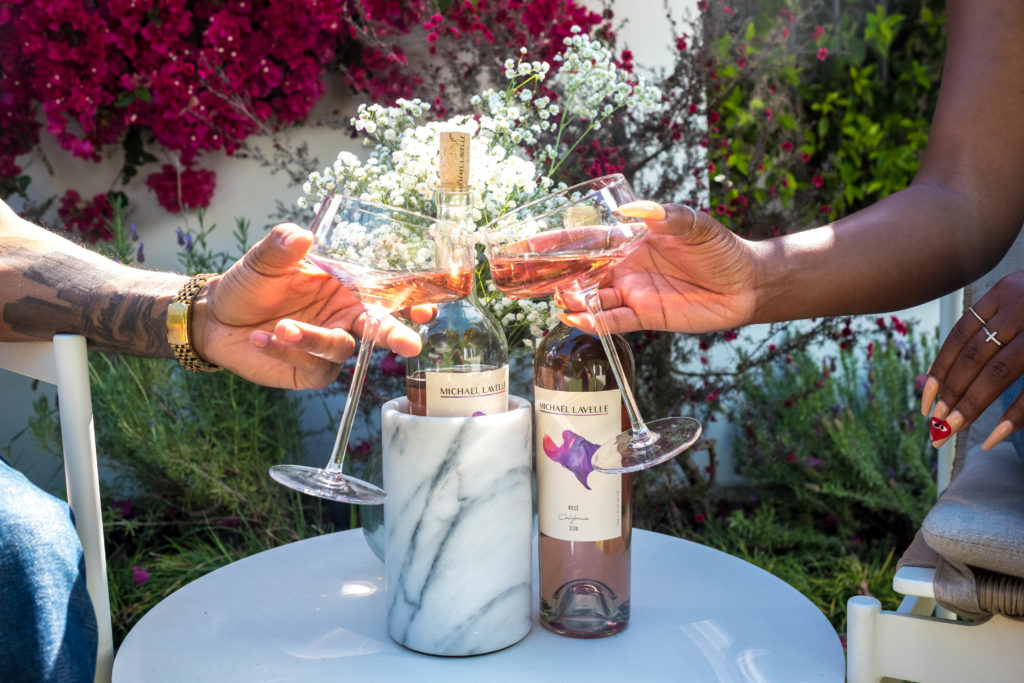
And beyond the bottles, the partners are focused on “encouraging the next generation of Black wine professionals” with philanthropic endeavors. They’ve partnered with The Roots Fund, a nonprofit aimed at creating opportunities for “communities of color in the wine industry,” by donating proceeds from each online order at ML. The donations provide a full scholarship to a student enrolled in an HBCU (Historically Black Colleges and Universities) to live abroad in France and earn an MBA in Wine Business & Management.
Oliver Winery
Bill Oliver, Co-founder and Board Member
Julie Adams, CEO
Rob Warren, Winemaker
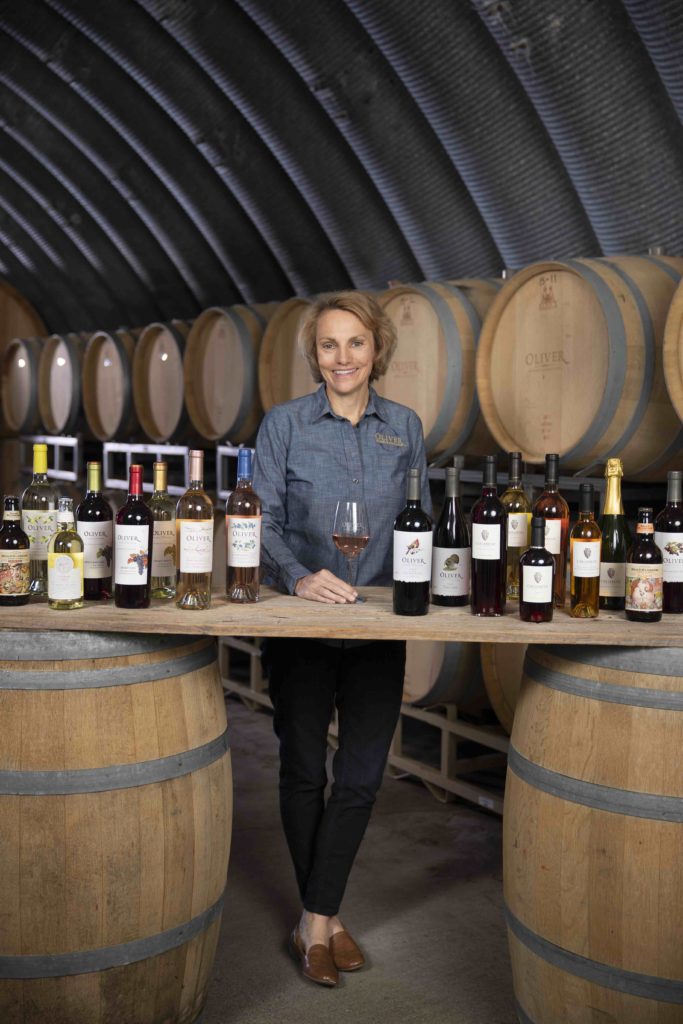
Indiana-based Oliver Winery began as the basement hobby and side project of William Oliver, a Law Professor at Indiana University. Today, under the stewardship of William’s son, co-founder and board member Bill Oliver, and CEO Julie Adams, it is one of the 30 largest wineries in the US — and they’ve done it while taking up a banner of sweet and semi-sweet wine production.
“Back in the 1980s and mid-1990s, not a lot of players had a big interest in the sweet wine business,” says Oliver. “There really was no category at the time. People really liked our Soft Red. It was a classic, ruby-red Concord. We used good fruit and did everything to ensure that we had the best quality, and we knew that even though it wasn’t done at the time people really liked our wines.” Today, Rob Warren, a graduate of Brock University in Canada, helms the cellars. Warren has worked in Canadian-, Virginian- and Illinois-based wineries.

And this proudly independent winery, with its wines distributed in more than 40 states, also believes that the good life involves giving back. Even if the charitable donations that the winery gives out annually don’t inspire “headline-grabbing” attention for its sums, their good intentions are evident in the local community and meaningful to their employees. The winery matches up to $100 in annual employee giving, and then donates $500 to a cause in their name after five years on the job. And charities range from the American Cancer Society and local Rotary Clubs to Women of the Vine & Spirits and The Roots Fund. Beyond charities, local theatre music, and arts, health, and environmental groups find support from Oliver Winery. “We have always been a civic- and community-minded company,” says Adams, “because our purpose is to bring people together through wine — [and] giving means a lot to us.”
Channing Daughters
Larry Perrine, CEO and Partner
James Christopher Tracy, Winemaker
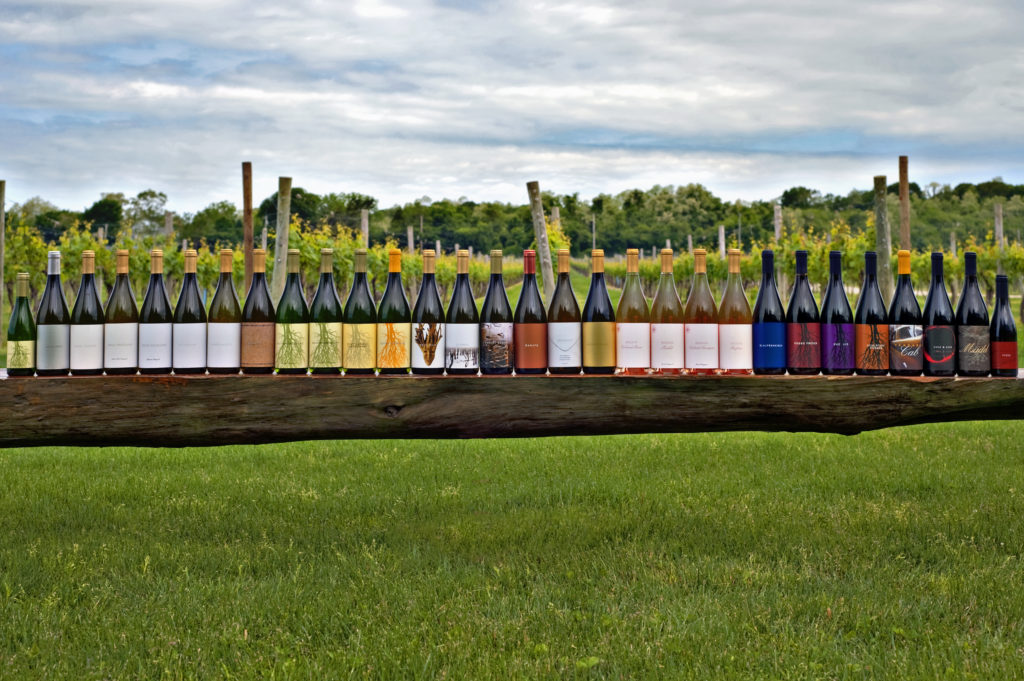
Channing Daughters is a stalwart Long Island wine producer, practically synonymous with wine from New York State. Vines were first planted on the Bridgehampton estate in the 1980s, and in 1995, Larry Perrine and Walter Channing Jr. established the winery. The first wines rolled off the bottling line in 1997. Channing, who passed away in 2015, was a pioneer of grape growing on Long Island. Today, Perrine, partner and CEO, and longtime winemaker James Christopher Tracy continue to produce a variety of wines and styles that over the years have ranged from traditional whites and reds to skin-fermented whites, sparkling pet-nats, and even vermouths.
Tracy’s involvement goes back to 1999, first as an enthusiast. The San Francisco Bay Area native delved into performing arts and co-founded a non-profit theatre company in his early career. He wrote undercover restaurant reviews and later attended the French Culinary Institute, going on to work as a sous chef, then sommelier. The wine side drew him in, and by 2001 he was producing some eclectic wines at Channing Daughters, and named winemaker in 2002.
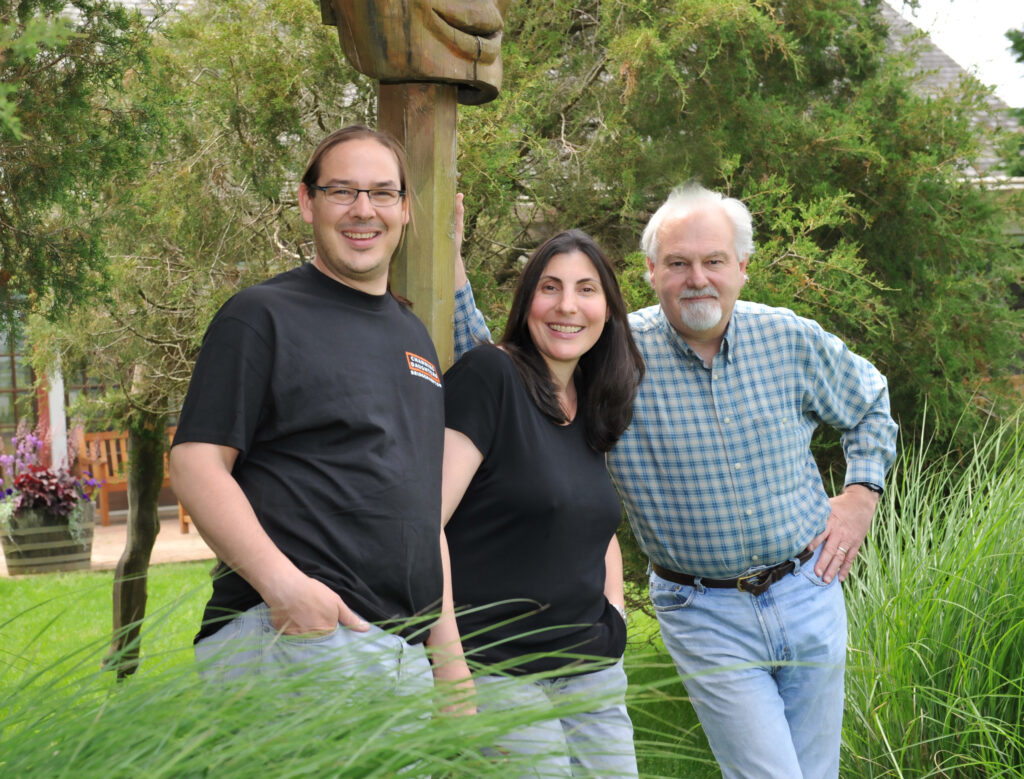
Perrine, for his part, is one of the four founding members of the Long Island Sustainable Winegrowing (LISW) project. Perrine partnered with Suffolk County Cornell Cooperative Extension Grape Specialist Alice Wise to create the LISW, which debuted in 2013. Trained as a soil scientist, Perrine encouraged fellow grape growers to select the “softest” plant protection materials to use on Long Island grapevines, codified in the LISW program. Why? Water. “We sit and farm on top of our water table on Long Island,” says Perrine, “It is our drinking water supply.” The LISW is aimed at protecting the purity of that water by restricting the amount of nitrogen fertilizer while encouraging the use of non-leachable plant protection materials. “My ultimate goal is to leave our farm vineyard in a healthier state than when I began my work here at Channing Daughters 26 years ago.”
Lost Oak Winery
Jim Evans, Winemaker
Roxanne Myers, President
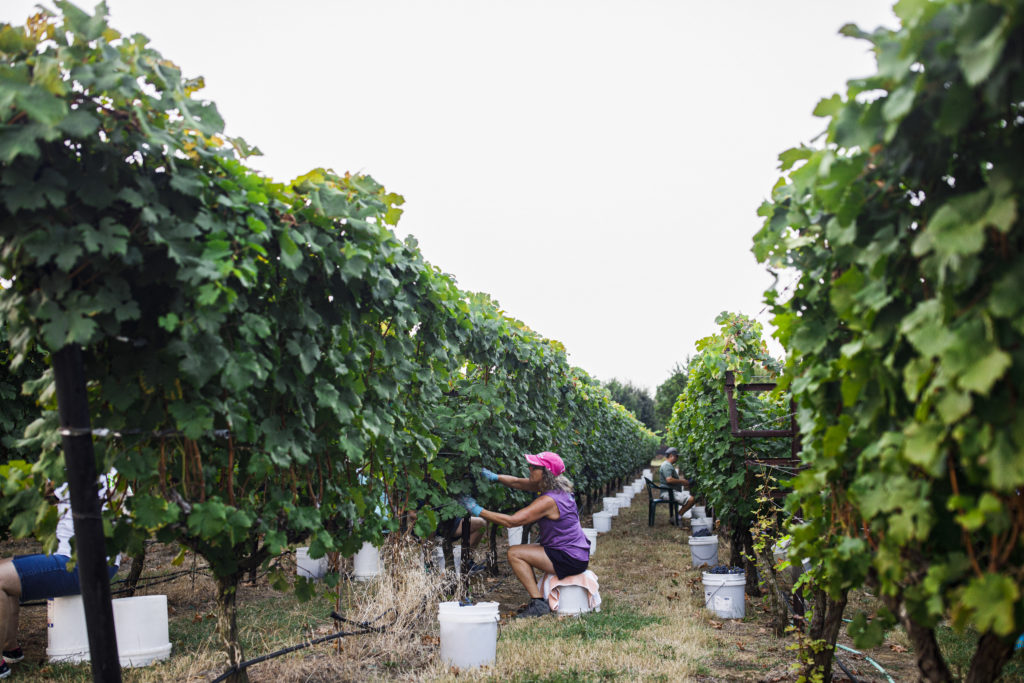
Longtime winemaker Jim Evans first started at Lone Oak Vineyards (then, based in Denton, TX) with the harvest season of 1996, and stayed on as the winery was acquired by Gene Estes — stepfather to current winery president Roxanne Myers — and changed its name to Lone Oak Winery, and finally to Lost Oak Winery, which it has remained since 2006. Evans continues to produce a fruit-forward, approachable, delicious style of wine, and for the last two years has been joined in the cellar by consulting winemaker Jean Hoefliger — one of Napa Valley’s top winemaking talents. Together, they are an emboldened force, working hard to put Texas wine on the map and give it the spotlight it deserves — and place of honor alongside meals at dinner tables throughout the United States.
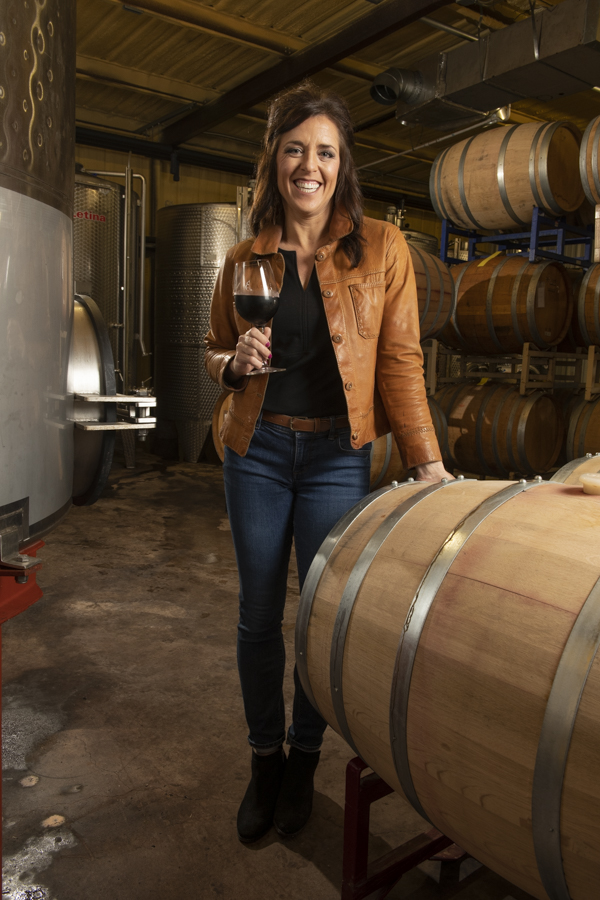
Lost Oak Winery currently offers 18 different wines in its portfolio, split almost evenly between bright, food-friendly whites and sumptuous reds — and now there’s mineral-driven rosé in the mix. The wines have earned gold medals at the San Francisco International Competition and medals from the Dallas Morning News wine competition. But its success should come as no surprise. Since the early Aughts, when a slew of Texas counties turned from dry to wet, the winery scene in the Hill Country has exploded, with vintners taking advantage of the limestone-rich soils and dry, breezy conditions that make the Hill Country “apt for grape growing,” as Myers puts it. Property land is not only affordable, “it is one of the most beautiful parts of Texas and a primary destination for wine tourism.”
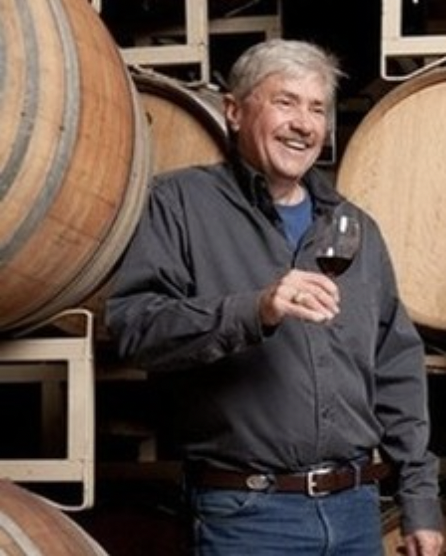
Not only is Lost Oak a prime destination, the winery is also leveraging its profits for causes that resonate with the team. “We got involved with Kidd’s Kids through our mission to support organizations that our Lost Oak team cares about,” explains Myers. “Kidd’s Kids send families with children who have life threatening conditions to Disney World. For their 30th anniversary, we created a special limited edition label to help families and children in our community.” Next time you’re in Texas, don’t forget to drop by, or it’ll be a ‘lost’ opportunity.
Shady Lane Cellars
Kasey Wierzba, General Manager and Executive Winemaker
Andrew Fles, Vineyard Manager
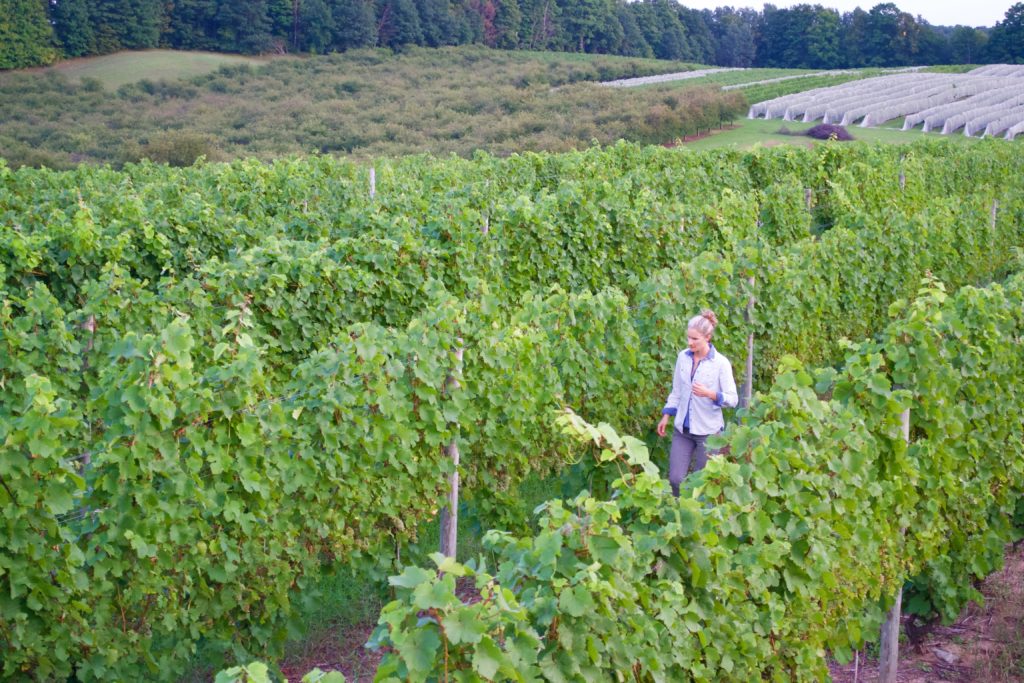
In 1987, Dr. Joseph O’Donnell, a Neurosurgeon, bought the 100-acre fruit farm that would eventually bear fruit on the vine for Shady Lane Cellars. The very first vines, in fact, went in the ground in 1988 and 1999 and included Riesling, Pinot Noir, Chardonnay, and Vignole, a hybrid variety naturally high in sugars and acid and quite versatile. Today, the estate is helmed by General Manager and Executive Winemaker Kasey Wierzba, a graduate of Michigan State who worked stints in Napa Valley at Rudd, Frog’s Leap and Far Niente.
Vineyard Manager Andrew Fles, also a Michigan State alum who interned in the Willamette Valley and has worked at Peninsula Cellars in Michigan, joined Shady Lane in 2013, the same year as Wierzba. The portfolio of wines includes just under 10 whites, a rosé of Pinot Noir, and four red wines, and they just introduced a new line called Brio. Additionally, the winery produces canned sparkling, a white Pinot Noir, a white blend, a rosé blend, a red, and a cider.
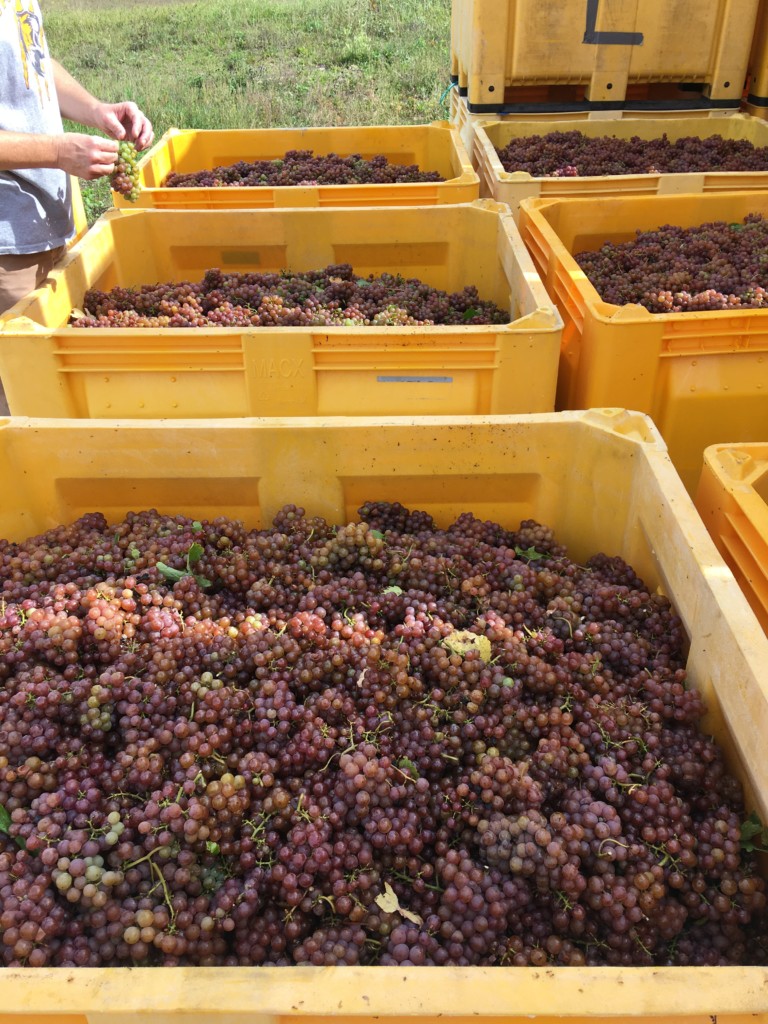
And not only is Shady Lane crushing it by surviving winters blanketed by an ocean of snow, they are thriving as environmental stewards, and it comes down to their farming. “We became interested in SIP Certification,” says Fles, referring to the rigorous standards set by the body governing SIP credentials, “because we knew we were making extra efforts in soil and land stewardship already, as part of my goals as a farmer and who we want to be as a winery.” The program dictates that a winery adhere to “strict, non-negotiable standards based on science and expert input, independent verification, transparency, and absence of conflict of interest.” As for Shady Lane, Fles says “I am focused on bringing in speakers from all over the world to continue our education on environmental sustainability. We are constantly looking at what works in other parts of the world, and how we can adapt those ideas to help in our unique, Great Lakes maritime growing region.”
More from Better:
- A Guide to the Art of Wine and Cheese Pairing, With Tips From Cheese Expert Laura Werlin
- 7 Women Winemakers in California Forging a Better, Brighter Future With Sustainable Viticulture
- Going Sober in October: Help Yourself and Others Feel Better This Fall
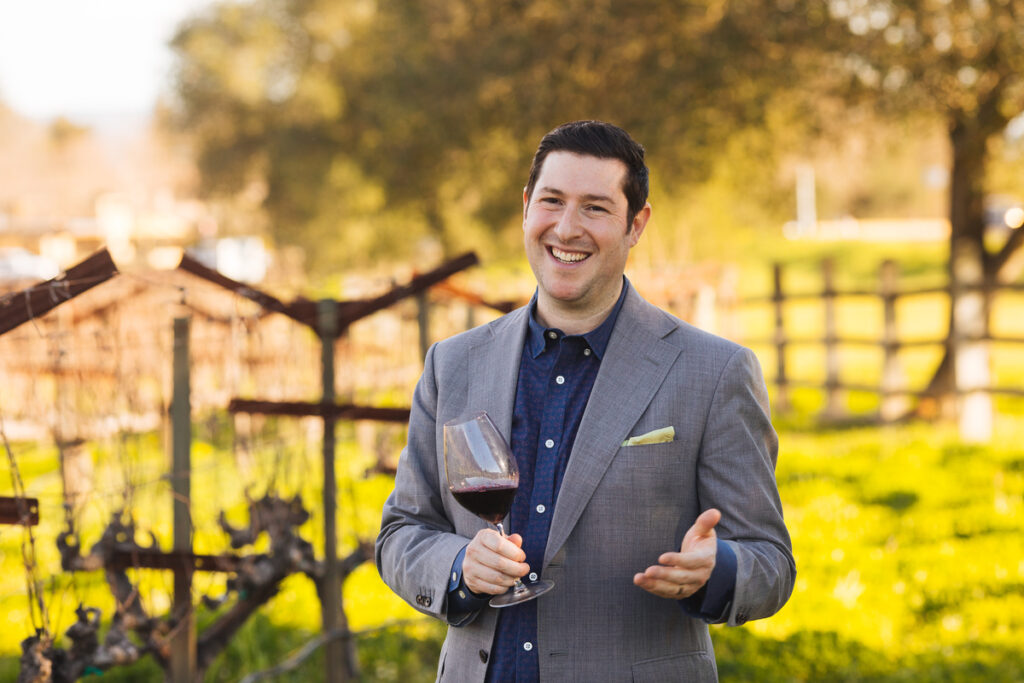
Jonathan Cristaldi is a wine writer and critic. For more than a decade, his articles on wine, spirits, and beer have appeared in local and national print and digital platforms, including Decanter, Food & Wine, Departures; The SOMM Journal; Tasting Panel Magazine; Liquor.com; Seven Fifty Daily; Los Angeles Magazine; LA Mag’s Liquid LA blog; Thrillist (National Edition); Tasting Table (National Edition); Time Out LA; Complex Magazine’s First We Feast blog; Vivino; and Psychology Today. When not writing for print, he’s writing for the screen, having produced a number of documentaries with award-winning commercial photographer and director Rachid Dahnoun, including “Embers & Vines” for Food & Wine.
